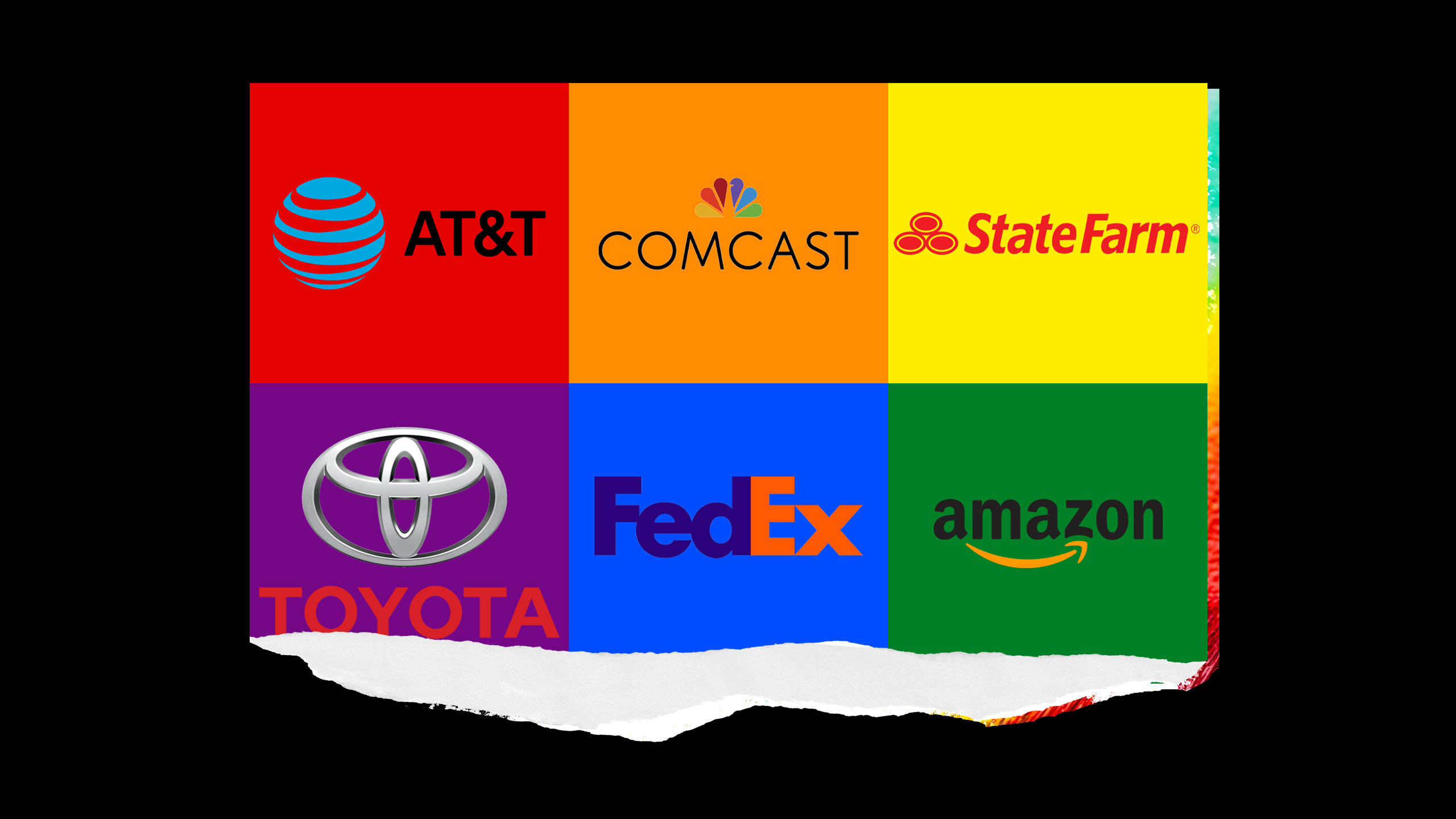Despite sponsoring Pride events and signing pledges to oppose anti-LGBTQ2S+ legislation, many major corporations are still making significant donations to lawmakers who are propping up discriminatory bills, according to a new report.
Over the course of the 2020 and 2022 election cycles, companies including Pfizer, Amazon, Wells Fargo and CVS have given thousands of dollars to the campaigns of legislators who have signed or proposed anti-LGBTQ2S+ bills, according to recent analysis from Data for Progress as reported by the 19th. At least seven of the companies listed had signed on to a pledge drawn up by Freedom for All Americans (FFAA) and the Human Rights Campaign (HRC) to oppose discriminatory legislation.
Rachael Salisbury, one of the report’s co-authors, told the 19th that such pledges are nothing but “pretty words” at this point. “I want to give those leaders of those companies the benefit of the doubt, and hopefully they’re not being intentionally duplicitous,” she said. “But even if it is just carelessness, we can’t tolerate that in our allies anymore.”
The report found that 30 different U.S. companies that had sponsored Pride events, either this year or last, were guilty of donating to anti-LGBTQ2S+ lawmakers. These included Toyota, General Motors, State Farm and Amazon.
“Even if it is just carelessness, we can’t tolerate that in our allies anymore.”
Of the companies noted in the report, Toyota led the way in terms of donations by either a company itself, its employee-led PACs, or affiliates—totalling over half a million dollars in contributions ($601,500 USD) over the 2020 and 2022 election cycles. AT&T followed, with $307,100 USD in contributions, and Comcast, Amazon and FedEx also made the top 10.
Among politicians tracked in the report, Texas Gov. Greg Abbott received the most contributions—netting over $2 million, with his attorney general, Ken Paxton, also receiving nearly $200,000. The two have come under fire for targeting trans youth who are receiving gender-affirming healthcare in recent months.
Alabama Gov. Kay Ivey also received hundreds of thousands of dollars from the corporations, and politicians in Alabama in general received the most money of all the states tracked. Alabama, like Texas, has had a similarly high number of anti-LGBTQ2S+ bills introduced over the past several years. Earlier this year, the state became the first to implement a ban on gender-affirming care for minors (though it was subsequently partially blocked by a judge).
This is far from the first time many of these corporations have been outed for not putting their money where their mouth is. Earlier this year, a report from the newsletter Popular Information revealed that companies including AT&T and Comcast/NBC Universal had donated hundreds of thousands dollars to backers of Florida’s controversial “Don’t Say Gay” bill—including the bill’s sponsors and Gov. Ron DeSantis, who is currently attempting to eliminate gender-affirming healthcare for adults on Medicaid in the state. DeSantis signed the “Don’t Say Gay” bill into law in late March.
Popular Information’s findings further back up the Data for Progress report, with a June report indicating that since last year, 25 major corporations—all of which publicly proclaim their support for LGBTQ2S+ rights—have collectively donated more than $13.2 million to anti-LGBTQ2S+ politicians. These included Verizon, General Motors, CVS and, once again, AT&T, which has donated at least $1,052,000 since 2021.
Despite these significant donations, Popular Information reported that all 25 companies were included on HRC’s 2022 Corporate Equality Index, with 15 receiving perfect scores—thanks to the fact that the index does not account for political contributions.
In the face of the growing anti-LGBTQ2S+ legislative crusade, advocates have increasingly called for corporate action, pointing to the effect of 2016’s corporate boycott of North Carolina over the state’s notorious HB2 bathroom bill. Over 100 companies—including Apple, Bank of America and Starbucks—came out in opposition to the law, which was ultimately repealed due to fears over its economic impact. According to an AP analysis, the bill could have potentially cost the state nearly $4 billion over the next 12 years.
Given the massive impact that corporate action can have in opposing discriminatory legislative efforts—and in the face of increased right-wing fervour behind anti-trans bills in particular—advocates are renewing their calls for companies to divest from politicians intent on doing harm. “Companies have a singular ability to gain audience with lawmakers across the political spectrum, and can help share both the human and business reasons that this kind of policy-making is at odds with corporate values, public opinion and long-term competitiveness,” said Freedom for All Americans communications VP Angela Dallara in a statement.


 Why you can trust Xtra
Why you can trust Xtra


